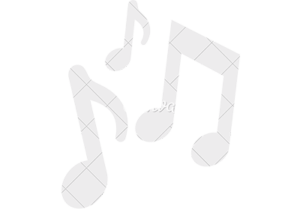DIPLOMA OF MUSIC TEACHING (E-LEARNING)
Course Outlet
At the end of the programme, students should be able to:
- Demonstrate a good grasp of critical and essential pedagogical skills and strategies as they embark on their teaching journey.
- Apply practical skills and knowledge and be effective communicators who are reflective, and constantly working on becoming their own teaching advocates.
| Level |
|
| Method | Blended or E-learning |
| Assessment Methods | Coursework and Quizzes | Assignment | Exam (Practical and Paper-based) |
| Maximum Duration | 12 months | No refund for failure to complete course |
Music Performance Skills
- Private Instructions (Optional)
Weekly private lessons on the student’s primary instrument. Topics vary based on the needs of the individual – from fundamentals to advanced techniques, as well as personal topics of interest and preparation for juries and final projects. One hour per week. - Ensemble + Performance Style & Appreciation (Jazz/Contemporary)
Live performance workshops from intimate to masterclass settings aim to develop strong ensemble skills and improvisational skills. Students will also accrue a wide variety of repertoire in many different styles.
Students will gain an analytical overview of styles, chart reading and critical listening as they relate to repertoire requirements. Some of the styles covered include rock, rhythm & blues, jazz, and Latin music.
Music Skills and Technology
- Tonal & Contemporary Theory
This is a concise and comprehensive module that aims to provide students with the knowledge of fundamental intermediate music theories and principles. These are the building blocks for more advanced composition and arranging modules, and students will be able to use this knowledge as a launchpad to deeper learning whether It is their contemporary or classical skills that they wish to develop. - Ear Training
This module is a comprehensive course to understanding foundational and intermediate aural and sight singing theory such as recognition of pulse, pitch, rhythms, and melody. Students will gain confidence in understanding and interacting musically in a live band. The material will give them the development and confidence to engage in higher learning in a musical style of their choice. - Music Analysis
This is where students will learn to how to analyze a piece of music, identifying musical structure, harmonies in both written compositions and performances. - Music and Audio Production and Post-Production
In this module, students will learn essential basic music and audio production skills including post-production, so they are able to prepare quality and effective teaching materials. - Sibelius Notation
Students will learn to use Sibelius notation software effectively to create professional looking lead sheets, master rhythm scores, and individual parts with an emphasis on educational materials.
Specialisation
- Introduction To The Learning Theories and the Psychology & Sociology of Learning
This module is a key foundation to teaching and learning theory. Learners will be taught different pedagogical approaches, and learning theories such as Illeris Three Dimensions of Learning and Kolb’s Experiential Learning Theory.
They will learn the importance of profiling their own learners, applying active learning strategies and classroom management skills in their classrooms.
Throughout this module, real and authentic examples of professional practice will be experienced throughout the module. They will also learn the teacher code of ethics/conduct and best teaching practices. - Theoretical and Cultural Applications In Music education: An Introduction
This module aims to equip learners with effective and reflective communication language skills that can serve to empower, motivate and encourage their own students. Learners will also have the chance to apply different effective strategies and approaches in real simulated classroom scenarios to achieve an authentic learning experience. - Music Education Pedagogy, E-Pedagogy, and Facilitation
In this module, students will be taught essential pedagogies and practices in both traditional face-to-face settings and virtual classrooms. Students will also learn facilitating and acting skills to prepare them in their role as a “Facili-Actor” where he/she is a holistic and multi-dimensional collaborative educator in today’s dynamic education landscape.
Optional
- Music History
- Mozart to Beethoven
This module explores Western music from both the Classical and Romantic, covering the musical styles from the Classical period through the 20th century including cultural contexts and social meaning. - The Birth of Jazz & Popular Music
This module explores jazz music from its beginnings as a worksong up till modern interpretations in the form of Avant Garde and free jazz. It also explores pop music as an entity in the latter half of the twentieth century. First learning about Western popular music, students will thereafter be able to draw links as to how it continues to influence popular music in the Asia-Pacific region.
- Mozart to Beethoven
- Effective Communication & Language I, II
In this module, we will consider the concept of effective communication to promote marketing communications, examining the learning from both theoretical and practical aspects. The English language will be used as a medium for communication. Students learn to speak, write, listen, and interpret professionally, exploring a variety of communication problems, develop a promotional plan and execute the campaign. - Physical Training & Discipline
The music artist is required to maintain both physical and mental health in tip-top condition. Students are required to have scheduled professional training as part of their regular artist development and progress. - Global Experience Workshop (GEX)
A collection of intensive workshops conducted by both lecturer & visiting artist/producer/engineer simulating live and real practical experience. This is for the purpose of enhancing learning and comprehension of the real world of the music industry. These workshops are conducted either in the academy or a real working environment in a local/international setting. Students will work in groups in three different themes of workshops such as LIVE (Performance based), FAME (Artistic Development based), and STAR (Music Production based). - Capstone Project
In this project, students will design a term worth of music lessons by applying all that is learnt. There will be 1 to 1 consultation culminating in a live presentation including shareables charts, websites, guide tracks, etc.)
Course Information
Diploma in Music Teaching is a specialized educational program designed for aspiring music teachers who want to develop the skills and knowledge necessary to teach music to others. This program is aimed at musicians who are passionate about music education and who want to share their love of music with others.
The program typically covers a wide range of topics, including music theory, history, composition, and performance. It also focuses on pedagogical methods and techniques, teaching strategies, and classroom management skills. Students in this program learn how to design and implement effective lesson plans, how to motivate and engage students, and how to assess student progress and provide constructive feedback.
The Diploma in Music Teaching program also provides students with hands-on teaching experience, allowing them to practice and refine their teaching skills under the guidance of experienced music teachers. This experience is invaluable for students who want to develop their own teaching style and philosophy, and who want to gain practical experience before entering the workforce.
Upon completion of the program, graduates can pursue a wide range of career opportunities in music education, including teaching at schools, music conservatories, or private studios. They may also choose to work as music therapists or music program directors in community organizations or other settings.
In summary, a Diploma in Music Teaching is an excellent educational option for musicians who are passionate about music education and who want to develop the skills and knowledge necessary to become effective music teachers. With a combination of theoretical knowledge, practical skills, and hands-on teaching experience, graduates of this program are well-prepared for successful and rewarding careers in music education.
Admission Requirements
 GCE ‘A’ Level/Grade 9 or Equivalent
GCE ‘A’ Level/Grade 9 or Equivalent
 MIN 18 YEARS @START OF TERM
MIN 18 YEARS @START OF TERM
Music | English requirements
 ABRSM Grade 5 Practical & Theory or Equivalent
ABRSM Grade 5 Practical & Theory or Equivalent
 C6@GCE ‘O’| IELTS 5.5 | TOEFL 46 | DUOLINGO 85 | Equivalent.
C6@GCE ‘O’| IELTS 5.5 | TOEFL 46 | DUOLINGO 85 | Equivalent.
Course Intake | Duration
 SPRING | SUMMER | FALL
SPRING | SUMMER | FALL
 6 months, 24 teaching weeks
6 months, 24 teaching weeks
 S$11000
S$11000
Audition & Interview
 2 Pieces of Music in contrasting style. 10 Mins
2 Pieces of Music in contrasting style. 10 Mins
 15 Mins Interview
15 Mins Interview
Course Mode
Full-Time
Learning Methods
Delivery modes:
Hitmaker Programmes are conducted and delivered using the hybrid model of both online and blended learning approaches. The method allows students to learn flexibly with non-practical modules delivered online.
-
- Online/Blended Learning; or
- On-campus
Workshops
Hitmaker conducts online or on-campus Global Experience Workshops featuring the REAL industry practical experience.
Assessments
Depending on the modules, assessment/examination may vary in way of:
-
- Course Assignment – Student is required to complete and submit instructions in the form of a written assignment
- Practical Examination – Student is assessed (especially music performance) in the form of live performance judging
- Application/Computer-based Examination
- Workshop Assignments – Student is assessed in a group context and normally given a set of tasks to complete
- Paper-based Examination
Teacher-student Ratio
The teacher to student ratio shall depend on factors such as:
1. The nature of the course/module:
-
-
- Private Instructions | 1:1
-
2. The size of the premises:
-
-
- Ensemble | 1:10
- Tutorial | 1: 8
- Music Production | 1:5
- Instrumentals | 1:5
- Lecture | 1:25
-
Covid Advisory – Due to the restrictions, class size is kept to the limitation of 1 – 2 metres distancing measures. Student shall expect a smaller class sizes or smaller cohort sizes.
Course Fees
| Full Fees | JAC Funding |
| S$11,000.00 | S$10,000.00 |
JAC Foundation Scholarship subsidises course fees for students, enabling them to fulfil their full potential. It also sponsors and supports costs for programmes and musical instruments. Eligible students will be given JAC Foundation Scholarship forms along with their Letters of Offer.
Application & Audition Fees
1. Pre-enrollment fees
| Application fee | S$50.00 |
| Audition fee(If applicable) | S$150.00 |
2. Enrollment fees
| Registration fee | S$300.00 |
| Study Resources & Facility | S$1,000.00 |
Assessments
The Foundation Diploma comprises of a combination of multiple assessment methods depending on the design and nature of the course. Our programme emphasises a substantial amount of practical based elements that would require a combination of different assessment methods:
- Practical / Live Performance Exam
- Written Exam
- Written and Practical Assignments
- Workshop Assignments
- Project Assignments
- Examinations & Assignments: 60%
- Workshop Assignment: 20%
- Participation: 10%
- Ethics: 10%
- High Distinction (HD) – 90 Marks and Above
- Distinction (D) – 75 to 89
- Credit (C) – 60 to 74
- Pass (P) – 50 to 59
- Fail (F) – 49 Marks and below
EXPECTED EXAMINATION RESULTS RELEASE DATE | 1month after the examination
EXPECTED AWARD CONFERMENT DATE | within 1 month after successful completion of all modules
